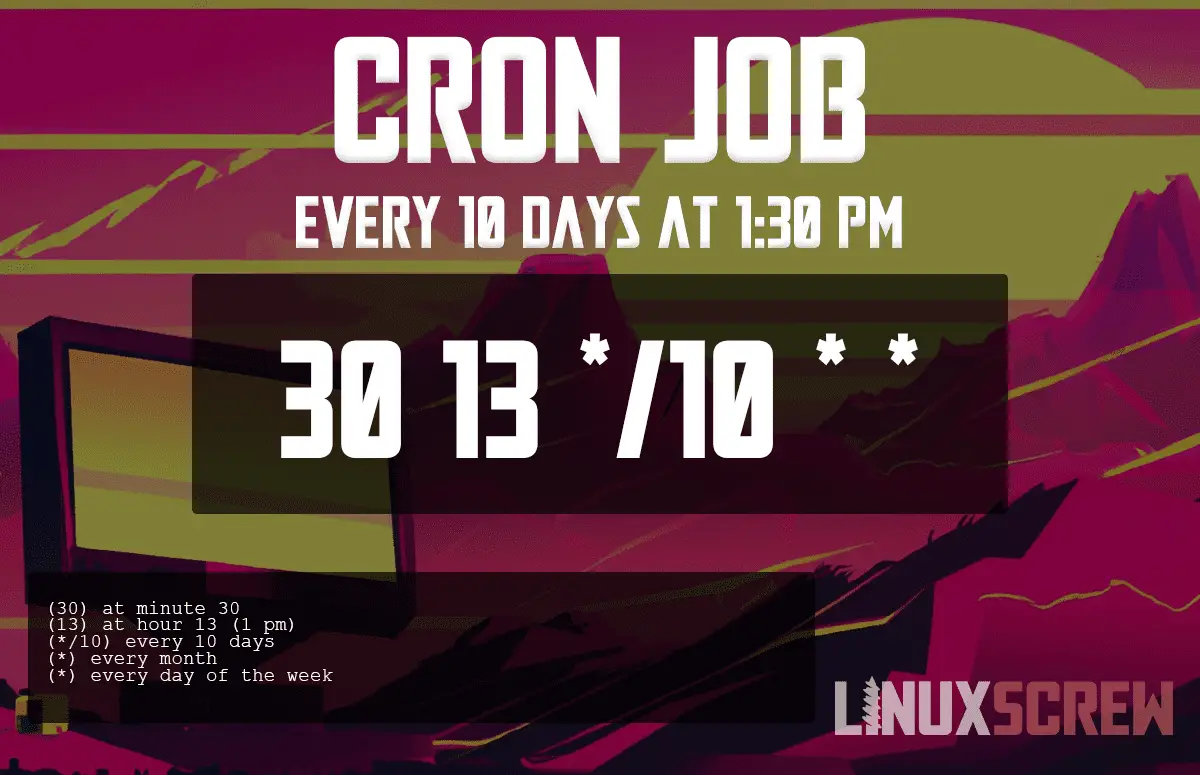This page will help you quickly and easily set up a cron job to run every 10 days at 1:30 pm.
The Cron Job/Crontab
To have your task run at this frequency, use the following cron:
30 13 */10 * *
This cron command translates to the following (in Human-Readable format):
“Every 10 days at 1:30 pm.”
What is a Cron Job & Crontab?
A cron job is a task that is scheduled to run at a specific time or interval. Cron is a Linux utility that allows tasks to be automatically run in the background at regular intervals. These tasks are often called “cron jobs.”
To create or edit a cron job, users must first open the crontab file using a text editor. The crontab file contains instructions for the cron daemon, which is the program that actually executes the commands specified in the file. Each line in the crontab file represents a single task or command.
Cron Fields
Every cron job uses five fields. Here is an explanation of what each field does in this cron, which runs “every 10 days at 1:30 pm“:
FUN FACT: If you need to delete a cron job, simply remove the corresponding line from the crontab file and save your changes..
Use Cases
You might want to set up a crontab or cron job to run every 10 days at 1:30 pm for several reasons, including:
- Run a script to update some data every 10 days
- Perform a system maintenance task every 10 days
- Send out a report or notification every 10 days
Similar Cron Jobs
You might also want to run a crontab:
- every 2 days
- every 6 days
- every 5 days
- every 1 day
- every 9 days
- every 9 days at 5:30 am
- every 8 days at 12:30 pm
FUN FACT: Cron jobs can be used to automate just about any task that needs to be performed regularly – so get creative and see what you can come up with!.
Wrapping Up
In this article, you learned how to set up a cron job that runs every 10 days at 1:30 pm. Please share this page with friends and colleagues if you find it useful.
If you have any questions, please don’t hesitate to comment below.
If you are looking for cron jobs that run at certain minutes, hours, days, weekdays, or months, or if you are looking for miscellaneous cron jobs, then check out our relevant sections, or visit our crontab cheat sheet for a list of hundreds of popular cron jobs.

